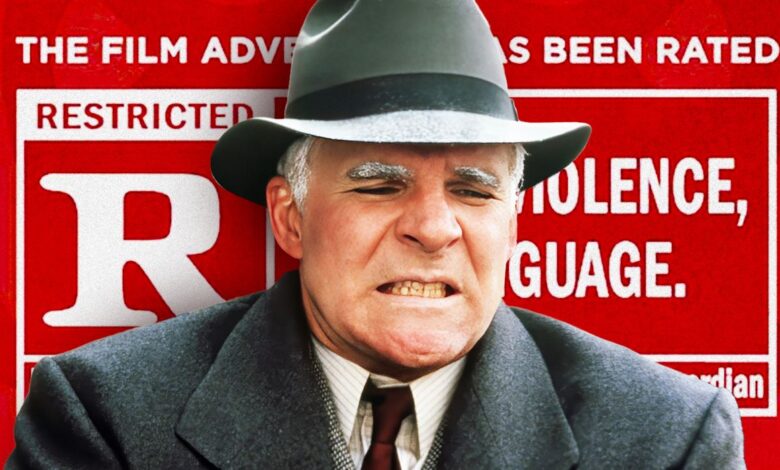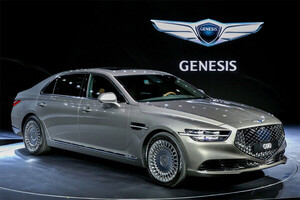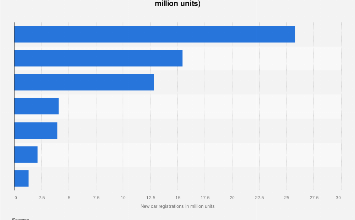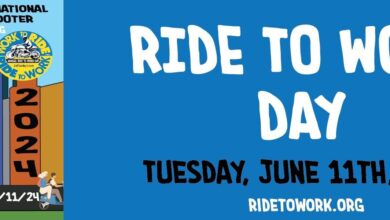Steve Martin Is Why ‘Planes, Trains & Automobiles’ Got an R-Rating

The Big Picture
-
Planes, Trains, and Automobiles
is a beloved Thanksgiving movie that combines sentimental comedy with physical humor, making it funny and heartwarming. - The iconic scene featuring Steve Martin’s profanity-laden tirade was written by John Hughes and showcases Martin’s live-wire energy and comedic timing.
- The decision to include explicit language in one scene resulted in an R-rating, limiting the film’s potential audience but also pushing the boundaries of profanity in movies.
Planes, Trains, and Automobiles, along with being a crowning achievement for one of the most formative filmmakers of the 1980s, John Hughes, has lingered in pop culture as the defining Thanksgiving movie. Considering that the canon of Thanksgiving cinema is shallow, to begin with, the film is especially celebrated during the holiday and is revisited by a mass audience every late November. Perhaps inadvertently on Hughes’ part, crafting a story about two stranded men with polar opposite personalities learning to accept each other is the perfect formula for striking the holiday spirit. Ideally, a sentimental comedy like Planes, Trains, and Automobiles would be rewarding for the whole family. However, a particular NSFW Steve Martin scene was responsible for branding the film with an R-rating.
John Hughes’ 1987 film centers around Neal Page (Martin), a reserved, if not prickly, advertising executive attempting to return home to convene with his family on Thanksgiving. Along the way, after a barrage of travel setbacks, is linked with Del Griffith (John Candy), a boisterous, chatty shower curtain ring sales representative. Through happenstance, they are forced to work together, and butt heads in the process, to catch any mode of transportation. PTA is rooted in the electric chemistry between Martin and Candy, two undeniable comedy legends. Their conflict is genuine and not merely a rehash of tropes heard on The Bickersons. It is equally a dynamic character-driven comedy and a showstopping display of physical/slapstick humor. Planes, Trains, and Automobiles achieves the highest accomplishment of Hollywood comedies by being funny and heartwarming, with both attributes never being compromised.
Planes, Trains & Automobiles
A Chicago advertising man must struggle to travel home from New York for Thanksgiving, with a lovable oaf of a shower-curtain-ring salesman as his only companion.
‘Planes, Trains & Automobiles’ Most Iconic Scene Features Tons of Steve Martin F-Bombs
Perhaps the film’s most iconic scene occurs around the halfway mark. The journey to return home has devolved into a Kafkaesque nightmare. It is always one step forward and two steps backward for Neal, who has become increasingly irritable. After temporarily parting ways with Del, Neal purchases a rental car at St. Louis Airport. When a shuttle bus drops him off at the lot of the rental dealer, there is no car waiting for him. This mishap causes him to undergo a perilous hike back to the terminal. As he marches towards a rental agent played by Edie McClurg, who played Principal Ed Rooney’s secretary in Hughes’ Ferris Bueller’s Day Off, a disheveled Neal is simmering with rage. He has been vying for an opportunity to explode with all of his wrath ever since his cab in New York was taken by Del in New York. 19 F-bombs later, an all-time movie tirade was born.
The juxtaposition of the front desk clerk’s folksy hospitality to Neal’s general disdain for life is only the beginning of the carnage. “You can start by wiping that fucking dumbass smile off your rosy fucking cheeks!” Neal barks at the clerk. Neal, backed by Steve Martin’s familiar live-wire energy, spews f-bomb after f-bomb in between nearly every word of this legendary tirade where he demands any car–a Datsun, Toyota, Mustang, Buick, or anything with four wheels and a seat. Needless to say, Neal was dissatisfied with the company’s negligence in forgetting to supply him with an automobile. When he informs the clerk that he disposed of his rental agreement paper, she throws it right back in Neal’s face, stating “You’re fucked.” Despite the evident anger in Neal’s demeanor and vocabulary, Martin brilliantly plays the scene relatively low-tempered. He is still maintaining an inside voice, which only heightens the absurdity of the rant. The decision also indicates to the audience that this character could explode with a Hulk-like rage if he desired to.
Was Steve Martin’s ‘Planes, Trains & Automobiles’ Rant in John Hughes’ Script?
Great comedy in film is frequently born from ingenious improvisation from actors. As revealed by Steve Martin in an interview with USA Today, every profane utterance of Neal’s rental dealership tirade was written by John Hughes. “There’s a certain rhythm to John’s writing,” Martin describes. “And if you start just saying the f-word anytime you want, it’s just going to fall out of whack and not be poetic.” This is not to say that Hughes demanded total devotion to his script. Martin stated that the late writer-director encouraged ab-libbing between him and John Candy. He recounts instances where shoots would extend to 16 hours in a day as a result of their freewheeling improvisation. Hughes and Martin, after realizing just how behind schedule they were in filming, agreed to discontinue their unrestrained approach.
The lengthy production of Planes, Trains, and Automobiles, which lasted 85 days, a substantial amount of time for a comedy, inspired the legend of the extended director’s cut of the film. Editor Paul Hirsch stated that the original cut ran for 3 hours and 45 minutes. In 2022, the film was released on 4K Blu-ray to celebrate its 35th anniversary, which contained 75 minutes of deleted scenes. For a director of road trip and high school comedies, Hughes’ ambition is impressive. His instinct to allow his prominent talent to perfect a scene through patient improvisation while also understanding that comedies work most effectively when they are concise speaks to his exceptional craft.
Why Did ‘Planes, Trains & Automobiles’ Receive an R-Rating?
Beyond the hilarity of Neal’s tirade, the scene is an incredible flexing of artistic license on the grounds of its rating with the MPAA. Without the scene, Planes, Trains, and Automobiles could have realistically played in movie theaters with a PG rating. Considering that the rating opens the film to a wider, family-oriented audience, this would have been a lucrative prospect. Since it is still adult in tone, PTA could comfortably exist as PG-13, which was in its infancy in 1987. From the eyes of stringent, financially motivated distributors, the profane tirade could be interpreted as superfluous to the narrative. History has taught us that artists often lose this battle against studios. In this case, John Hughes was granted a palette to destroy his film’s chances of receiving a rating more applicable to a wider audience. A clean version of Neal’s rant was filmed, according to Martin. Speaking to USA Today, he was the one who advised Hughes to shoot a censored version for practical measures, telling him “They’re going to need it for airplanes.” Miraculously, the clean take was not inserted by the studio for the final cut. “As far as I know, it never saw the light of day or an airplane,” Martin said.
There is a boldness to the decision to compartmentalize all the F-bombs in a film for one scene. Renowned director Mike Nichols, best known for The Graduate, supplied Martin with words of wisdom. The actor recounted his meeting with Nichols where he said “In every movie you do, there should be a scene where you say to yourself, ‘Can we do that?'” While there is nothing risqué about the rant, the barrage of F-bombs creates an overwhelming sensation that challenges the tone and flow of the story. Most of all, the daring choice to unleash an onslaught of f-bombs within one minute while omitting the word from the rest of the film’s dialogue is celebratory. In addition to making the enduring Thanksgiving classic, you just have to tip your cap to John Hughes and Steve Martin for pushing the norms of profanity in movies.
Plains, Trains, and Automobiles is available to stream on Showtime in the U.S.



